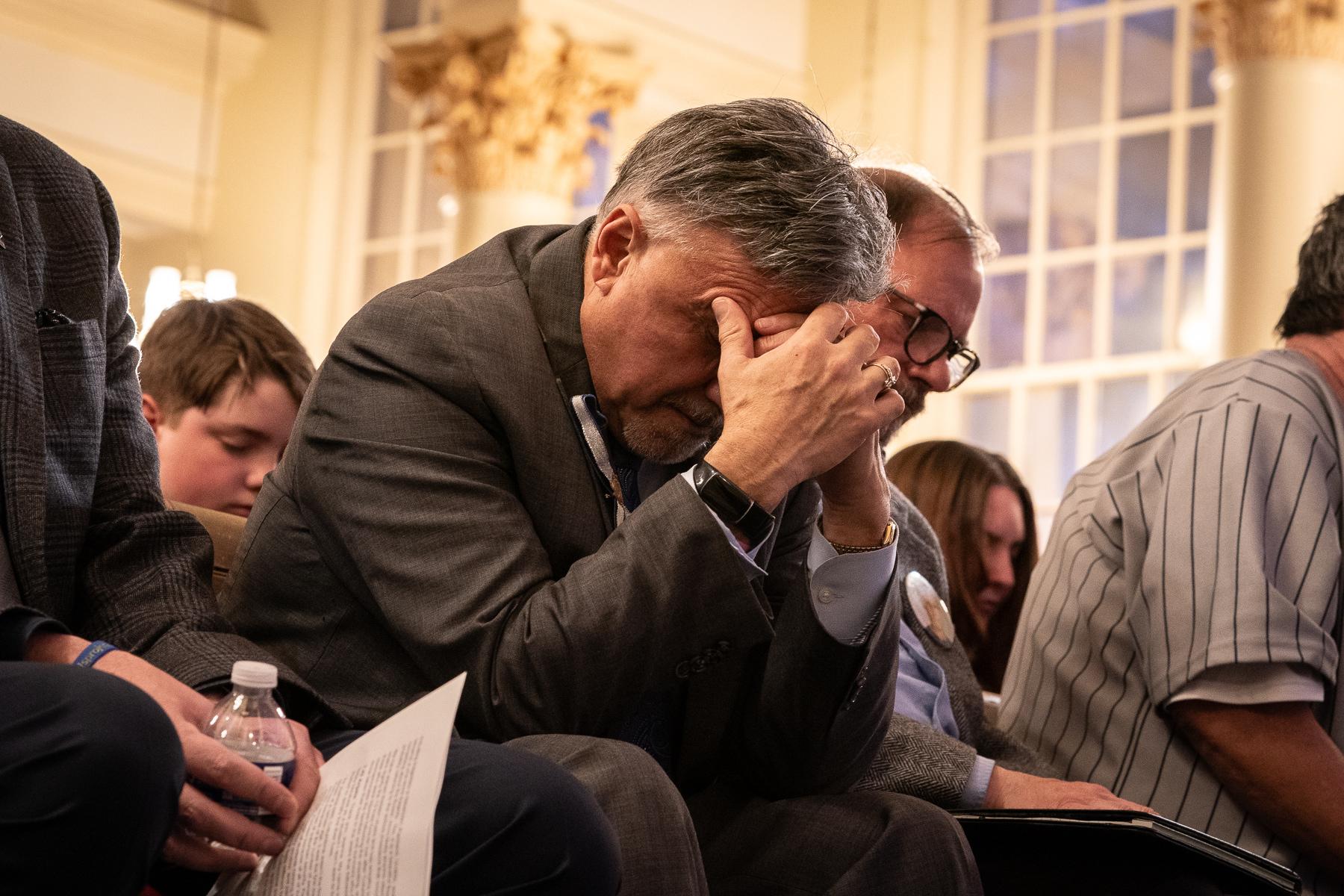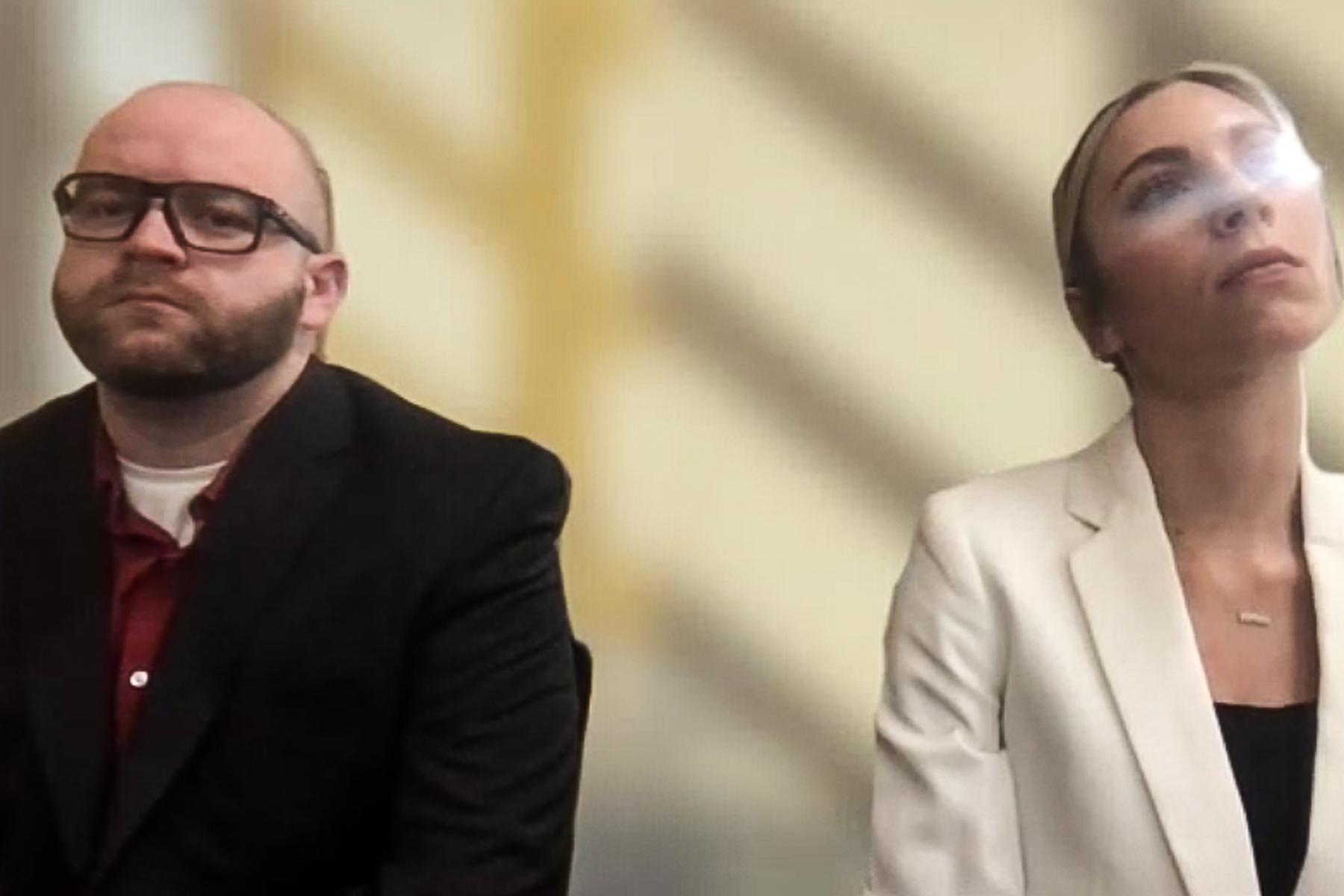The man accused of killing 12 people and wounding 58 others in an Aurora movie theater learned the charges against him Monday. Colorado Public Radio’s Megan Verlee was at the hearing and has this report.
Read and listen to CPR's full coverage of the Aurora theater shooting here.
The following is a transcript of Megan Verlee's report:
Reporter Megan Verlee: Recording devices were barred from the courtroom Monday. But court spokesman Rob McCallum stood before the media after the hearing to read off the charges. It’s a long list.
Robert McCallum: "24 counts of murder in the first degree. 116 counts of criminal attempt to commit first degree murder. One count of a sentence enhancer, which is a crime of violence. One count class-four felony, possession of an explosive device."
Reporter: 142 counts in all. Holmes didn’t respond when the judge read off the charges. But he did seem more engaged in Monday’s hearing than at his first appearance. Sitting shackled at the wrists and ankles, he consulted once with his lawyers and responded to a question from the judge. His hair is still a fading red-orange, but this time, it was combed neatly.
Prosecutors are charging Holmes twice for each victim, for two possible scenarios: that he either deliberately targeted individuals during the attack, or fired randomly into the crowd. DU law professor Sam Kamin says this is a common strategy for prosecutors in the early stages of a case.
Sam Kamin: "What they are setting up are alternate theories for a jury trial down the road."
Reporter: And whether a future jury finds Holmes guilty of one of those charges, or all 24, the options for punishment are still the same.
Kamin: "If he is convicted of any first degree murders he will spend the rest of his life, one way or the other in prison."
Reporter: Either serving a life sentence or on death row. As attorneys for both sides get their evidence together, the court is also considering how much the public will get to know about that process. A number of media companies, including National Public Radio, are suing to unseal documents in the case. Attorney Steven Zansberg is representing them.
Steven Zansberg: "There’s a recognized therapeutic, cathartic benefit to having the public monitor the workings of the criminal justice system, and our motion asks that that process be allowed to go forward."
Reporter: Next Thursday, the court will consider Zansberg’s arguments, and almost certainly hear from the defense and prosecution about why privacy is needed. Former Adams County District Attorney Bob Grant says for one thing, there’s a future jury to think of.
Bob Grant: "The more details are salaciously paraded through the media, the harder it will be to find those 16 good people."
Reporter: Also put off for a future hearing is the question of what to do with a notebook Holmes apparently sent his psychiatrist before the attack. Defense attorneys want it to be off-limits because of doctor-patient confidentiality, at least for now. But if they try to build an insanity defense, the notebook and any other evidence of Holmes’ mental state could become fair game in court.
The many victims and their family members who packed Monday’s hearing were looking for their own clues to what’s going on inside Holmes’ head.
MaryEllen Hansen: "He had an expression and kind of a persona of evilness to him, but he looked very sane to me. He really did."
Reporter: MaryEllen Hansen’s great-niece Veronica Moser was the attack’s youngest fatality.
Hansen: "I felt anger, and I felt resentment that anybody could take away somebody’s life for just going to the movies. And I also felt sorry for him, in the sense that, here was a brilliant person that could have done a lot of good but what, what went wrong?"
Reporter: The court won’t take up the question of Holmes’ alleged motive for many months. The next big milestone will be a preliminary hearing in early November, when the state will lay out the basic facts of its case.
[Courtroom Sketch: Jeff Kandyba]









